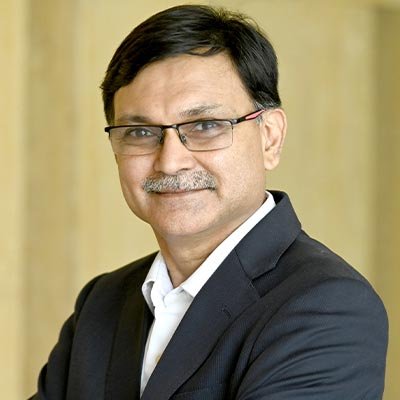Capgemini India’s CEO, Ashwin Yardi, advocates for a 47.5-hour workweek, contrasting with calls for longer hours by other industry leaders, emphasizing work-life balance.
Ashwin Yardi, the chief executive of Capgemini India, has entered the debate surrounding working hours in the IT industry. Speaking at the Nasscom Technology and Leadership Forum (NTLF), Yardi advocated for a 47.5-hour workweek and expressed his opposition to sending emails to employees on weekends.
His stance contrasts with the views of some other industry leaders who have recently called for longer working hours to boost economic growth.
Yardi’s Perspective on Working Hours
Responding to a question about the ideal work hours per week, Yardi stated, “Forty-seven and a half hours. We have about nine hours a day and five days a week.” This suggestion is notably lower than the 70-hour workweek proposed by Infosys co-founder N R Narayana Murthy and the 90-hour workweek suggested by Larsen & Toubro’s (L&T) Chairman S N Subrahmanyan.
Yardi also emphasized the importance of respecting employees’ personal time, stating, “My guiding principle for the last four years is don’t send an e-mail on a weekend even if it is an escalation unless you know you can solve it on a weekend.” He acknowledged that while he sometimes works on weekends, he refrains from sending emails to avoid placing unnecessary pressure on employees when they cannot address the issues until the following week.
Contrasting Views in the Industry
The debate on working hours has been a prominent topic in corporate India, especially with industry leaders suggesting extended workweeks. Narayana Murthy’s call for a 70-hour workweek and S N Subrahmanyan’s advocacy for 90-hour weeks have sparked discussions about work-life balance and employee well-being. These suggestions were made with the intention of boosting India’s economic growth.
However, Yardi’s perspective aligns with a growing sentiment that outcomes should matter more than the number of hours worked. This view was also shared by Nasscom Chairperson Sindhu Gangadharan, who also leads SAP India, at the same event. Marico CEO Saugata Gupta echoed this sentiment, emphasizing the focus on results rather than time spent at work, though he admitted to sending emails at late hours.
Capgemini’s Approach to Employee Well-being
Yardi highlighted the importance of adapting to the expectations of younger employees, given the demographic profile of IT workers. He outlined several strategies that Capgemini is adopting to address this.
These strategies include:
- Quarterly Promotion Cycles: To enable faster career growth for employees.
- Six-Week Employee Surveys: To understand employee concerns and expectations.
- Structured Career Paths: To help employees plan their professional journey.
These initiatives reflect Capgemini’s commitment to creating a supportive and engaging work environment that considers the well-being and career aspirations of its employees.
The Broader Context of Work-Life Balance
The discussion around working hours is closely linked to the concept of human sustainability, which emphasizes the mental health and overall well-being of employees. Some argue that overworking culture and rapid growth are contradictory, and that a focus on human sustainability is essential for long-term organizational success.
There is increasing recognition that organizations that prioritize employee well-being are better able to maintain a competitive edge. Employees are also placing greater importance on their health and are more likely to leave roles if they are not supported in maintaining a healthy work-life balance.
Furthermore, customers are increasingly seeking out companies that demonstrate social responsibility and care for their workers. This suggests that a focus on human sustainability can also positively impact an organization’s reputation and customer loyalty.
Conclusion
Ashwin Yardi’s advocacy for a 47.5-hour workweek and his emphasis on avoiding weekend emails reflect a growing recognition of the importance of work-life balance and employee well-being in the IT industry. His views contrast with those of some other industry leaders who have called for longer working hours, highlighting the ongoing debate about the ideal approach to maximizing productivity and ensuring a sustainable work environment.
Capgemini’s initiatives to adapt to the expectations of younger employees and promote employee well-being demonstrate a commitment to creating a supportive and engaging workplace. As the discussion around working hours continues, it is clear that finding a balance between ambition and well-being is essential for the future of work.
Sources: https://m.economictimes.com/tech/information-tech/capgemini-india-ceo-bats-for-47-5-hour-work-week-no-weekend-e-mails/articleshow/118556815.cms
https://www.peoplematters.in/article/employee-engagement/the-90-hour-workweek-myth-striking-the-balance-between-ambition-and-human-sustainability-44535
https://www.indiatoday.in/business/story/capgemini-ceo-ashwin-yardi-on-ideal-workweek-not-90-70-not-even-50-hours-2685788-2025-02-26
